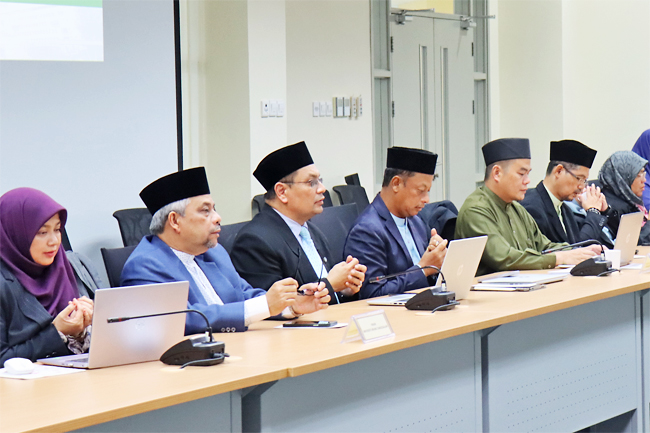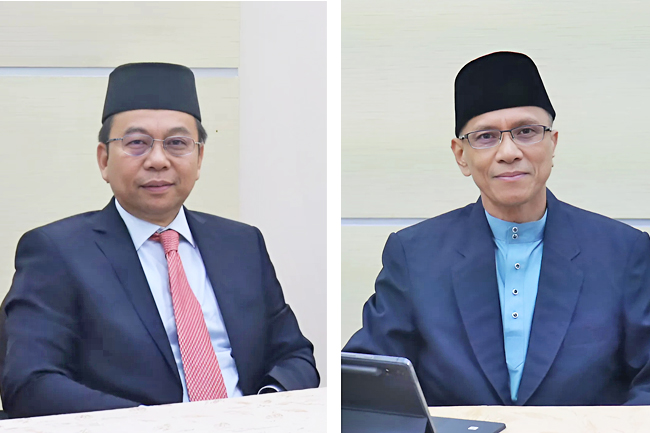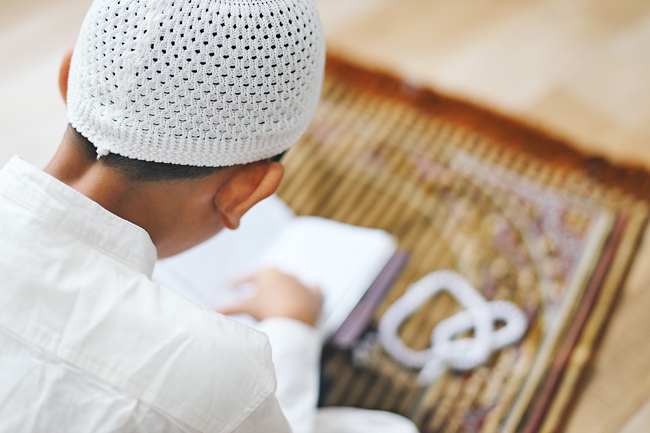Yesterday marked a significant milestone in Brunei’s education system – the one-year anniversary of the formal integration of Religious Subjects into the General Education System.
The initiative, referred to as “integration,” was introduced by the Ministry of Education (MoE) in collaboration with the Ministry of Religious Affairs (MoRA) last year, expanding Islamic Studies beyond traditional religious schools and into government, private and international primary schools.
The programme, which initially included students from the pre-school to Year 3, seeks to create a cohesive blend of general and religious education across the nation.
This milestone also coincides with a curriculum update, developed to equip students with essential Islamic knowledge while nurturing their critical thinking skills.
Director of Curriculum Development at the Ministry of Education cum Co-Chairperson for Working Committee for Curriculum and Assessment of the Integration of Religious Education Subjects into the General Education System Ali Hamdani bin Haji Muhamad Diah, explained that the two ministries have been implementing the updated Islamic Studies curriculum within the new integrated system since October last year, followed by a socialisation session in the subsequent month.
“The Ministry of Education and Ministry of Religious Affairs have worked closely to revise the Islamic Studies curriculum, considering the age-appropriateness and intellectual readiness of our students.”
In tandem, the Curriculum and Assessment Committee has taken several steps to refine the Islamic Studies curriculum for the coming years.



This process, he added, included reviewing the transitional curriculum, conducting benchmarking activities through local and international visits to observe best practices in curriculum development, surveying Islamic Studies teachers and summarising and validating the syllabus with the Expert Committee.
“Additionally, the Curriculum and Assessment Committee, in collaboration with the Expert Committee, is developing and coordinating content for the new Year 2 Islamic Studies textbook. This textbook will incorporate materials updated by the State Mufti’s Department for use in 2025.”
The revised curriculum, he continued, aims to develop students’ understanding of Fardhu Ain (personal obligations) and Fardhu Kifayah (communal obligations), fostering a well-rounded spiritual and moral foundation.
“Through this curriculum, students will further develop their potential to become individuals who are not only knowledgeable in religious matters but also possess active, creative and innovative thinking skills.
“This will enable them to navigate life and address the issues and challenges they face based on the true teachings of Islam.”
Acting Deputy Director of Islamic Studies at the MoRA and fellow co-chairperson Haji Ayop bin Haji Ghani shared that beginning January 2025, the updated curriculum will be introduced in stages, starting with Year 2 students and extending each year to subsequent levels, ie Year 3 by 2026, Year 4 by 2027 and Year 5 by 2028.
A significant part of developing the new curriculum involved input from experts at Brunei’s leading universities, including Universiti Brunei Darussalam, Universiti Sultan Sharif Ali, and Religious Teachers University College of Seri Begawan.
These collaborations, according to Ustaz Haji Ayop, ensured that each topic aligns with students’ cognitive development and spiritual needs.
“We wanted to ensure that the curriculum resonates with young minds and is age-appropriate while providing a solid Islamic foundation,” he said.
The development process also included consultations with Islamic Studies teachers through surveys, allowing the committee to incorporate feedback from those on the front lines of education. Monitoring visits to primary schools further supported this initiative, as the Curriculum and Assessment Committee observed how Islamic Studies lessons were received by students in Years 2 to 5.
This feedback loop was critical in refining the syllabus, providing a balanced approach to meet both academic and religious educational needs.
“We incorporated graphics and illustrations that resonate with students, making lessons both meaningful and enjoyable,” added Haji Ayop.
Each lesson is designed to nurture a student’s potential, encouraging curiosity and critical thinking within an Islamic framework.
Both ministries are optimistic about the impact of this integration, with the goal is to cultivate a generation that is rooted in Islamic values, resilient, and prepared for the world ahead. – James Kon




